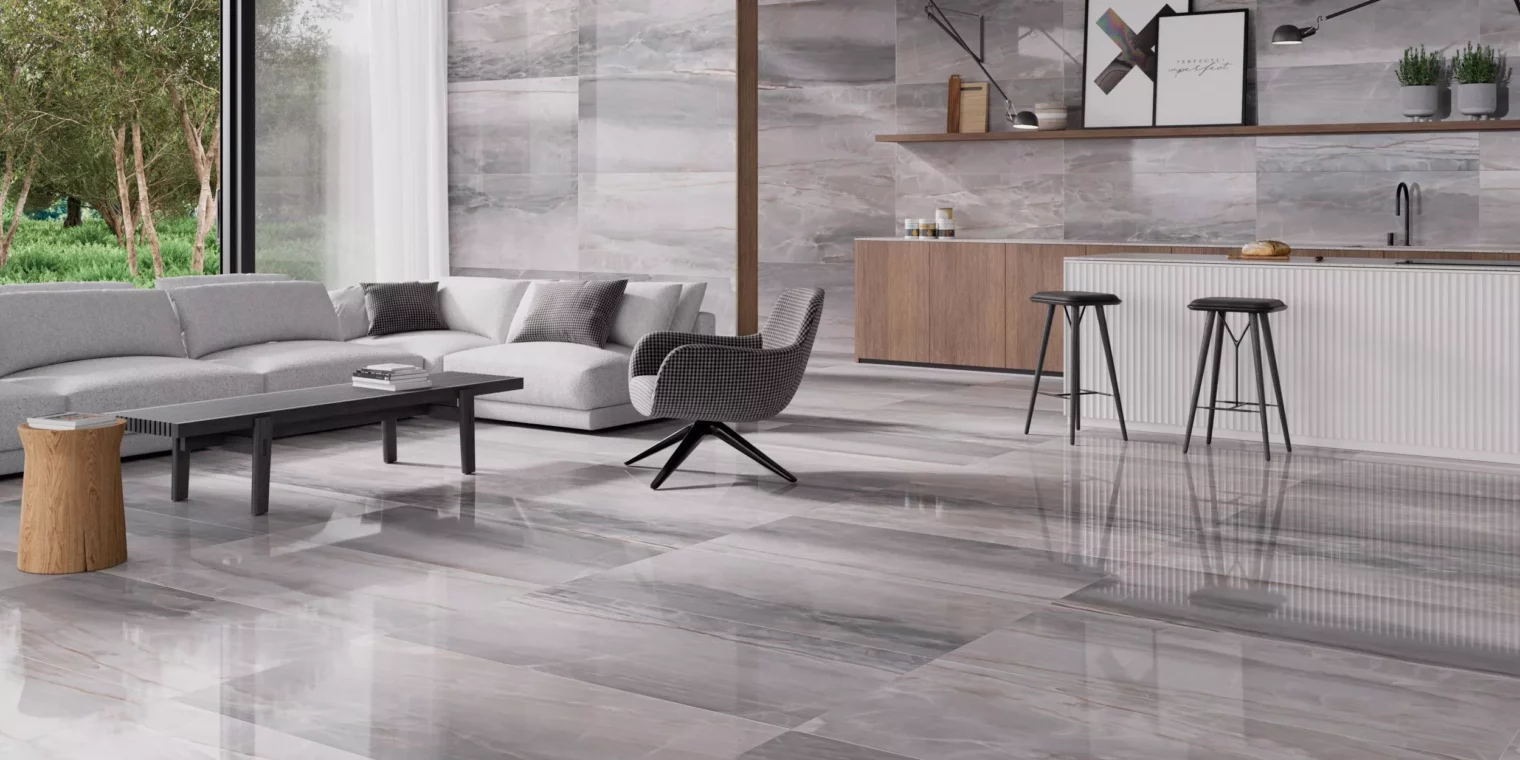Ceramic and Porcelain tile differ primarily in their manufacturing process. Although both tiles are crafted from a clay mixture and fired in a kiln, porcelain tile is produced using a more refined clay and is subjected to higher firing temperatures. Consequently, porcelain tile exhibits greater density and durability compared to ceramic tile.
Note:
Some contents in this article may contain external links. For more information, please refer to our
Privacy Policy
Ceramic and Porcelain
What Is Ceramic Tile?
Ceramic tiles are typically produced by blending clay with various minerals and water. The stoneware clay mixture is then heated to temperatures ranging from 1,800 to 2,000°F, resulting in water absorption levels varying from 0.5% to 3.0%, and in some cases, even as high as 20%.
What Is Porcelain Tile?
On the contrary, porcelain tile is composed of a clay, sand, and feldspar blend.
Feldspar, a naturally occurring mineral found in granite, is an essential component. The sand reinforces the mixture, while the feldspar undergoes melting, causing all the materials to fuse. As a result, the tile becomes denser than a typical ceramic tile, making it stronger (30% stronger than granite!) and more resistant to stains.
The tile is subjected to firing temperatures of up to 2,300°F. This higher temperature eliminates more water content, and the melting feldspar forms a glass with a lower degree of order, rendering the tile highly impermeable. According to the standards established by the Tile Council of North America (TCNA), a porcelain product must absorb 0.5% or less of water.
The difference is in the body.
- There are two types of porcelains: glazed and unglazed. The main distinction lies in the body of the porcelain, while both can have a ceramic glaze.
- The PEI rating pertains to the hardness of the glaze or surface of the tile, rather than indicating whether it is porcelain or ceramic.
- Porcelain tile, as per the conventional standards of the tile industry, is commonly referred to as a highly resistant type of ceramic tile. This implies that the tile has the ability to absorb water equal to or less than 0.5%.
Need More Help With Ceramic and Porcelain?
For additional information on ceramic tile or porcelain tile for your residence or project, please reach out to us or stop by our exceptional showroom today.
Share This Article

